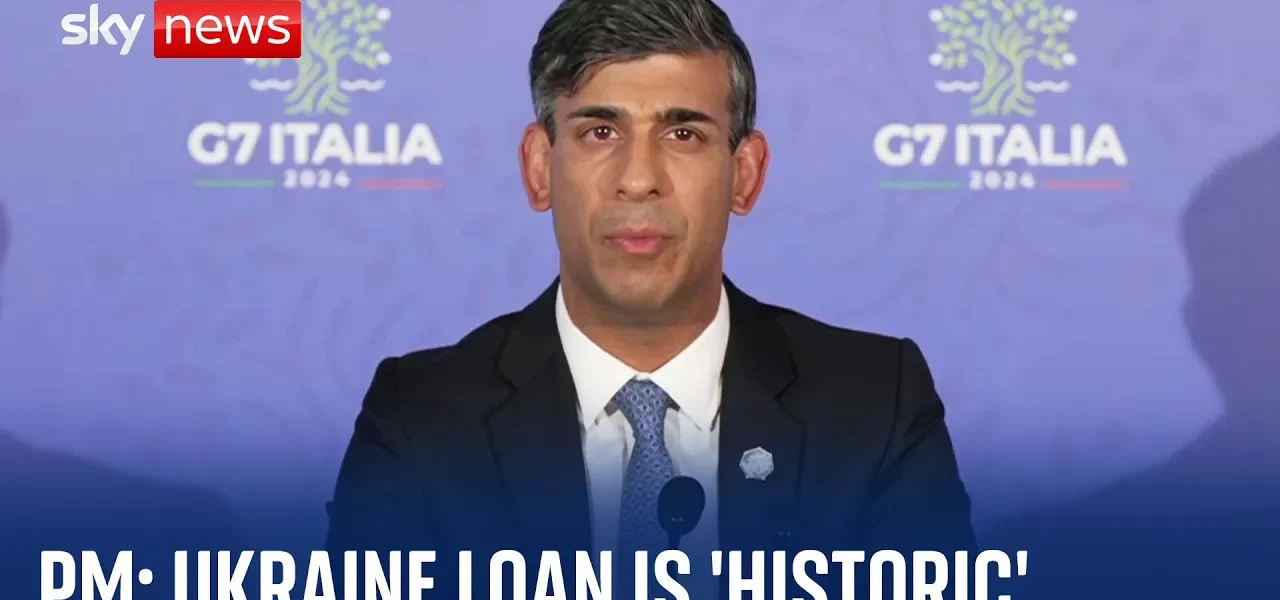G7 Summit: Addressing Global Security and Support for Ukraine

The G7 Summit has highlighted critical global issues including security threats, migration crises, and unwavering support for Ukraine. This article explores the discussions and commitments made during the summit, emphasizing the need for collective action in a dangerous world.
Introduction
The current global landscape is fraught with challenges, from ongoing conflicts to humanitarian crises. The recent G7 Summit convened leaders from the world’s major economies to address these pressing issues, particularly focusing on the implications of the war in Ukraine, migration challenges, and the assertiveness of China. With over 100 million people displaced globally due to conflict and climate change, the stakes for international cooperation have never been higher. This article delves into the key outcomes of the summit and their potential impact on global security and humanitarian efforts.
Commitment to Defense Spending
In light of the escalating threats, the UK has pledged to increase its defense spending to 2.5% of GDP by 2030. This commitment reflects a broader recognition among G7 nations of the need for enhanced military readiness and investment in national security.
Reasons Behind Increased Defense Spending
- The ongoing war in Ukraine poses a direct threat to European security.
- New technologies, including artificial intelligence, present both opportunities and risks.
- The need to counter state-sponsored cyber threats from countries like China and Russia.
Expected Outcomes
Increased defense budgets are expected to:
- Enhance military capabilities across member nations.
- Facilitate joint operations and strengthen NATO alliances.
- Provide a stronger deterrent against aggressive actions from adversarial states.
Addressing Global Migration Challenges
Illegal migration has emerged as a global emergency, prompting the G7 to focus on its root causes. The summit addressed the need for comprehensive strategies to manage migration effectively while respecting human rights.
Key Initiatives Discussed
- UK Development Assistance for Africa: A new package aimed at addressing the socio-economic factors driving migration.
- Italy’s Aulia Food Systems Initiative: Aimed at tackling food insecurity and its implications for migration.
- Countering People Smuggling: The G7 has launched a coalition to combat human trafficking and illegal smuggling operations.
Long-Term Goals
The G7 aims to create sustainable migration governance systems, ensuring that nations can maintain control over their borders while addressing the humanitarian needs of migrants.
Confronting China’s Assertiveness
During the summit, discussions surrounding China’s growing influence and aggressive actions were paramount. The G7 leaders expressed their concern over China’s interference in democratic processes and its partnerships with authoritarian regimes.
Sanctions and Economic Measures
In response to China’s actions, the G7 has agreed on several measures, including:
- Imposing sanctions on Chinese entities that undermine democratic processes.
- Protecting critical technologies and supply chains through the National Security Investment Act.
- Enhancing coordination among allies to deter aggressive actions by China.
The Importance of Unity
The G7’s unified stance on China sends a clear message: nations that support Russia’s war efforts will face consequences. This solidarity is crucial for maintaining global economic security and democratic values.
Support for Ukraine
The commitment to Ukraine’s security was a central theme at the G7 Summit. Leaders reaffirmed their dedication to providing military and economic support to Ukraine, recognizing that its stability is integral to European security.
Military Aid and Economic Assistance
The UK has committed to providing £3 billion in military aid annually until 2030, along with 50 new sanctions against Russia. Additionally, a historic loan of $50 billion has been agreed upon, which will be repaid using frozen Russian assets.
Path to Peace
While the G7 seeks a peaceful resolution, it is clear that peace must come on Ukraine’s terms, adhering to international law and the UN Charter. The summit emphasized that true justice will only be achieved when Russia withdraws from Ukrainian territory.
Conclusion
The G7 Summit has underscored the urgency of addressing global security challenges, migration crises, and the need for unwavering support for Ukraine. As nations navigate these complex issues, the call for unity and collaboration remains paramount. The commitments made at the summit signify a collective resolve to face these challenges head-on, ensuring a safer and more prosperous future for all. For ongoing updates on G7 initiatives and international relations, continue exploring our articles on global security and humanitarian efforts.
“`




